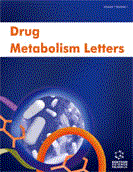Abstract
Semi-automated high throughput screening for the inhibition of major human cytochrome P450 enzymes (1A2, 2C9, 2C19, 2D6 and 3A4) expressed in Escherichia Coli (Cypex bactosomes) or human lymphoblastoid cells (Gentest cDNA microsomes) using fluorescent probes has been evaluated using 68 marketed drugs. In general lower IC50 values were obtained with Cypex bactosomes compared with Gentest cDNA microsomes. This could be due to use of higher concentration of protein and also the lower activity of Gentest cDNA microsomes. Notably, when compared with in vivo clinical drug-drug interactions (cDDIs) gathered from clinical studies reported in the scientific literature Cypex bactosome data was better at predicting in vivo cDDI. Consequently, from the data obtained in this comparative study, a fluorescence based assay using Cypex bactosomes is more suitable as a front-line screen for the prediction of potential downstream CYP450 driven cDDIs.
Keywords: Cytochrome P-450, Cypex bactosomes, Gentest cDNA microsomes, inhibition, Escherichia Coli, human lymphoblastoid cells, clinical drug-drug interactions (cDDIs), fluorescence, pooled human liver micro-somes (PHLMs), resorufin, 7-Benzyloxyquinoline, Ethoxyresorufin (ER), miconazole, Fluorometric Enzyme Inhibition Assays, potassium phosphate buffer, erythromycin, roxithromycin, propantheline, drug-drug interaction, fluvoxamine, cimetidine, dex-tromethorphan, enoxacin, quinidine, propranolol, quinine, ranitidine, allopurinol, disulfiram, flumazenil, ketorolac, lovastatin, nafcillin, rifam-picin, simvastatin, troleandomycin, valproic acid, amiodarone, aspirin, azithromycin, buspirone, caffeine, verapamil, tacrine, metoclopramide, cyclosporine, ketoconazole, carbamazepine epoxide, recombinant enzymes, ethylmorphine, liver microsomes, lymphoblastoid cell lines
Drug Metabolism Letters
Title: A Comparative Study of the CYP450 Inhibition Potential of Marketed Drugs Using Two Fluorescence Based Assay Platforms Routinely Used in the Pharmaceutical Industry
Volume: 5 Issue: 1
Author(s): Mahmud Kajbaf, Raffaele Longhi, Dino Montanari, Federica Vinco, Monica Rigo, Stefano Fontana and Kevin D. Read
Affiliation:
Keywords: Cytochrome P-450, Cypex bactosomes, Gentest cDNA microsomes, inhibition, Escherichia Coli, human lymphoblastoid cells, clinical drug-drug interactions (cDDIs), fluorescence, pooled human liver micro-somes (PHLMs), resorufin, 7-Benzyloxyquinoline, Ethoxyresorufin (ER), miconazole, Fluorometric Enzyme Inhibition Assays, potassium phosphate buffer, erythromycin, roxithromycin, propantheline, drug-drug interaction, fluvoxamine, cimetidine, dex-tromethorphan, enoxacin, quinidine, propranolol, quinine, ranitidine, allopurinol, disulfiram, flumazenil, ketorolac, lovastatin, nafcillin, rifam-picin, simvastatin, troleandomycin, valproic acid, amiodarone, aspirin, azithromycin, buspirone, caffeine, verapamil, tacrine, metoclopramide, cyclosporine, ketoconazole, carbamazepine epoxide, recombinant enzymes, ethylmorphine, liver microsomes, lymphoblastoid cell lines
Abstract: Semi-automated high throughput screening for the inhibition of major human cytochrome P450 enzymes (1A2, 2C9, 2C19, 2D6 and 3A4) expressed in Escherichia Coli (Cypex bactosomes) or human lymphoblastoid cells (Gentest cDNA microsomes) using fluorescent probes has been evaluated using 68 marketed drugs. In general lower IC50 values were obtained with Cypex bactosomes compared with Gentest cDNA microsomes. This could be due to use of higher concentration of protein and also the lower activity of Gentest cDNA microsomes. Notably, when compared with in vivo clinical drug-drug interactions (cDDIs) gathered from clinical studies reported in the scientific literature Cypex bactosome data was better at predicting in vivo cDDI. Consequently, from the data obtained in this comparative study, a fluorescence based assay using Cypex bactosomes is more suitable as a front-line screen for the prediction of potential downstream CYP450 driven cDDIs.
Export Options
About this article
Cite this article as:
Kajbaf Mahmud, Longhi Raffaele, Montanari Dino, Vinco Federica, Rigo Monica, Fontana Stefano and D. Read Kevin, A Comparative Study of the CYP450 Inhibition Potential of Marketed Drugs Using Two Fluorescence Based Assay Platforms Routinely Used in the Pharmaceutical Industry, Drug Metabolism Letters 2011; 5 (1) . https://dx.doi.org/10.2174/187231211794455262
| DOI https://dx.doi.org/10.2174/187231211794455262 |
Print ISSN 1872-3128 |
| Publisher Name Bentham Science Publisher |
Online ISSN 1874-0758 |
 45
45Related Articles
-
Neural Stem Cell Niches in Health and Diseases
Current Pharmaceutical Design Nanoceuticals as an Emerging Field: Current Status and Future Prospective
Current Nutrition & Food Science Emerging Evidence for the Role of Neurotransmitters in the Modulation of T Cell Responses to Cognate Ligands
Central Nervous System Agents in Medicinal Chemistry Inherited Copper Transport Disorders: Biochemical Mechanisms, Diagnosis, and Treatment
Current Drug Metabolism Voltage-Dependent Sodium Channel Blocker Anticonvulsants: An Approach to the Structure-Activity Relationship
Medicinal Chemistry Current Options and Perspectives in the Treatment of Diabetic Neuropathy
Current Pharmaceutical Design ABC Transporters in the CNS – An Inventory
Current Pharmaceutical Biotechnology Congenital Disorders of Glycosylation (CDG): Update and Perspectives
Current Pediatric Reviews Pyrrole: Chemical Synthesis, Microwave Assisted Synthesis, Reactions and Applications: A Review
Current Organic Chemistry Recent Progress in Biological Activities of Indole and Indole Alkaloids
Mini-Reviews in Medicinal Chemistry Cell-based Treatment of Cerebral Palsy: Still a Long Way Ahead
Current Stem Cell Research & Therapy Possible Physiopathological Roles of the Transglutaminase Activity in the Etiopathogenesis of Human Neurodegenerative Diseases
Recent Patents on CNS Drug Discovery (Discontinued) Neuroprotective Effects of Low-dose Lithium in Individuals at Ultra-high Risk for Psychosis. A Longitudinal MRI/MRS Study
Current Pharmaceutical Design A Novel Approach to Refractory Epilepsy by Targeting Pgp Peripherally and Centrally: Therapeutic Targets and Future Perspectives
CNS & Neurological Disorders - Drug Targets Repetitive Transcranial Magnetic Stimulation to Treat Substance Use Disorders and Compulsive Behavior
CNS & Neurological Disorders - Drug Targets Therapeutic Drug Monitoring of Phenytoin by Simple, Rapid, Accurate, Highly Sensitive and Novel Method and Its Clinical Applications
Current Pharmaceutical Biotechnology Neuropharmacological Profile of Gamma-Decanolactone on Chemically-induced Seizure in Mice
Central Nervous System Agents in Medicinal Chemistry Metabotropic Glutamate Receptors: A Review on Prospectives and Therapeutic Aspects
Mini-Reviews in Medicinal Chemistry The Plastic Phenomenon Underlying the Associative Processes in the Addictive Properties of Diazepam and Other Psychoactive Drugs
Mini-Reviews in Medicinal Chemistry Treatment of Epileptic Encephalopathies
Current Pharmaceutical Design















